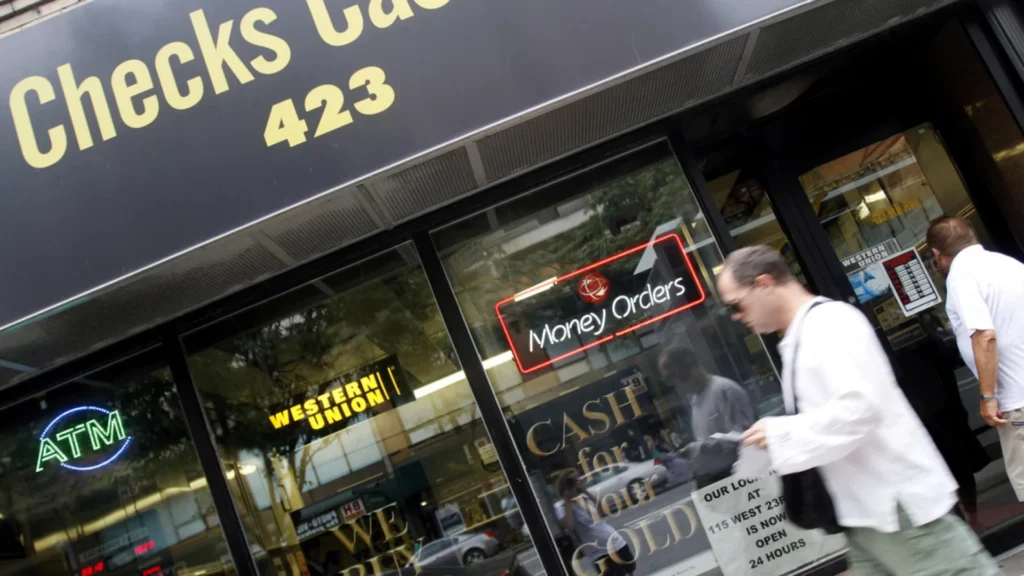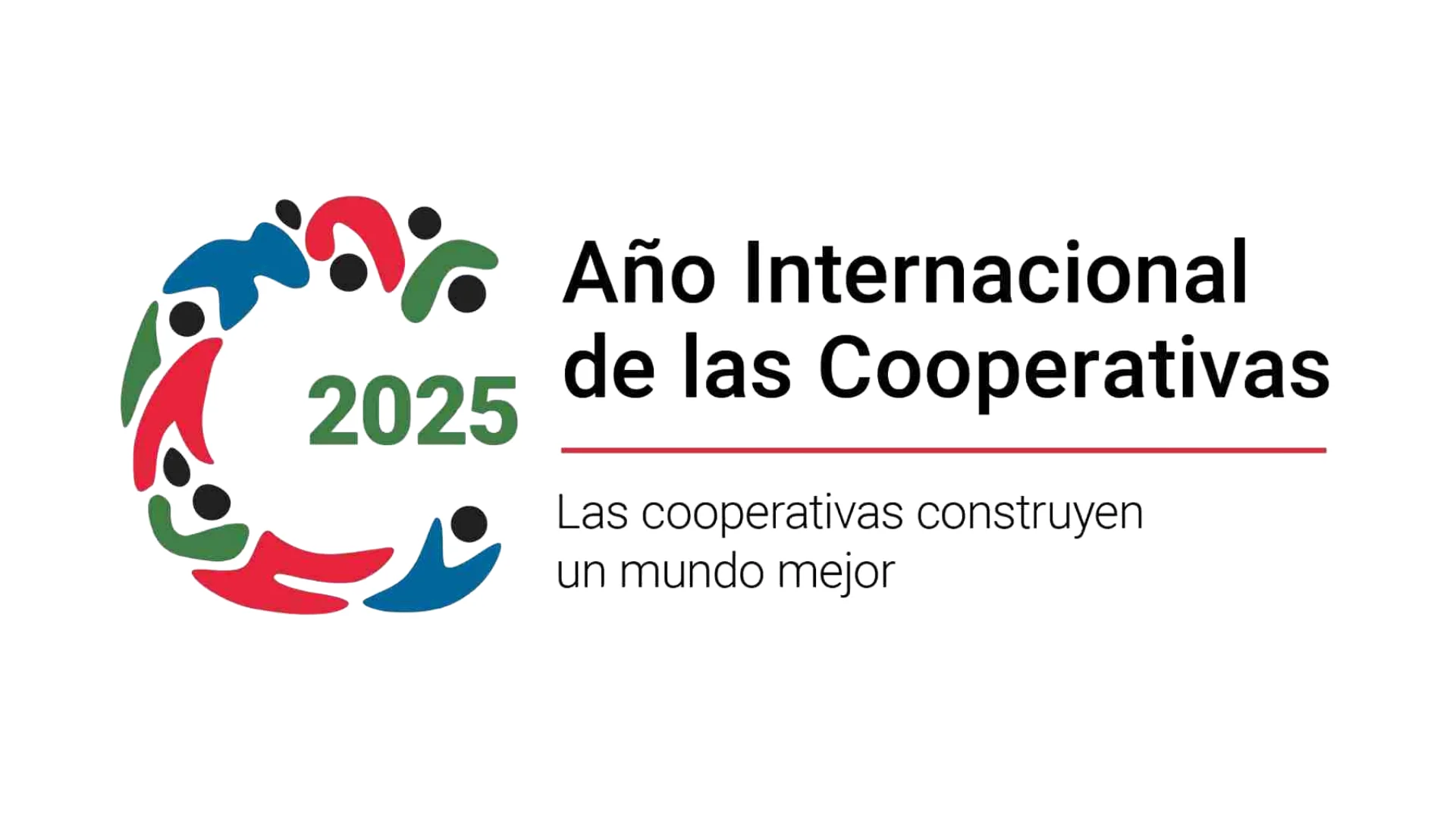Data on money transfers from the U.S. to Mexico will be collected.

The Mexico Plan, presented by the federal government to place Mexico among the world's 10th largest economies, represents a growth opportunity for Multiple Purpose Financial Companies (Sofomes), according to an analysis published by Moody's.
Millions of people who rely on check-cashing establishments, like this one in New York City, could have trouble purchasing health insurance.
South Texas residents: If you're planning to send money to relatives abroad or cash your paycheck, don't be surprised when you're now asked for your Social Security number.
Starting Monday, the Trump administration will require currency exchange centers like Casa de Cambio and Western Union along the U.S.-Mexico border to document every cash transaction between $200 and $10,000. This means customers will be required to provide their Social Security number or other identifying information. Those who are not U.S. citizens or residents will be required to show their passport, permanent resident card, or other official document.
The policy change aims to combat illicit activities, such as money laundering, by drug cartels and other criminals, according to an announcement by the U.S. Department of the Treasury's Financial Crimes Enforcement Network.
“As part of a whole-of-government approach to combating this threat, Treasury remains focused on leveraging all of our available tools and powers to better identify and counter these criminal activities,” Treasury Secretary Scott Bessent said at the time of the announcement last month.
The order targets 30 ZIP codes along the border with Mexico in California and Texas, including El Paso, Hidalgo, and Cameron counties.
Some business owners along the border are concerned about the additional work this will create when they are already required to report large cash transactions, and they said the policy could deter customers concerned about their privacy. Immigrants who are in the country legally, and those without legal status who regularly send money to relatives in their home countries, may be concerned about how the government will use their information.
The decision to expand the types of cash transactions tracked is part of the Trump administration's efforts to combat drug cartels and other criminal groups. Earlier this year, the State and Treasury Departments designated several groups as foreign terrorist organizations or "specially designated" organizations.
Albert Torres, a senior program director at the George W. Bush Institute, which focuses on issues such as illicit finance, corruption, and kleptocracy, said similar tools were used years ago to identify cocaine trafficking from Colombia to New York City.
Tracking these cash transactions is an attempt to complicate money laundering and a practice known as "structuring," he explained.
“This is how large deposits are divided into smaller ones to conceal the fact that they are being laundered through different jurisdictions,” Torres explained. “For example, instead of depositing $20,000 all at once, 10 or 15 different deposits are made that eventually add up to that $20,000.”
However, other policy experts expressed concern about who will actually be harmed by this order.
“The federal government says it's targeting these cartels, money launderers, and groups that bring drugs into the country,” said Nicholas Anthony, a policy analyst at the Cato Institute, a libertarian think tank. “But in reality, what's happening with this is that the federal government is targeting everyone because the $200 threshold is too low.”
Anthony noted that sending cash amounts as low as $200 is a fairly common amount to relatives living abroad, often referred to as "remittances." Those who collect their paychecks at currency exchange offices will also end up registering their personal information, he added.
The Texas Newsroom reached out to FinCEN for comment but did not receive a response.
Xavier Guerra is president of Reynosa Casa de Cambio, Inc., which has 13 branches in the Rio Grande Valley. All but two are located in the targeted ZIP codes. He said he has informed the federal government of his concerns about how his business and others like it will be affected.
“Providing your Social Security number in exchange for two hundred dollars is ridiculous,” Guerra explained.
Guerra emphasized that customers visiting from other countries may be reluctant to provide their passport or tourist visa numbers for fear that the collected information could be used to track them or deny them future entry to the U.S.
Guerra also indicated that filing reports for smaller amounts will only create more work for companies like his. Financial services companies already file what's known as a Foreign Currency Transaction Report for large cash transactions.
Business owners like Guerra are worried they'll have to cut staff or close if they lose customers. He explained that Americans who want to exchange dollars for pesos on their way to Mexico might decide to wait and do so in Mexico.
“We have written to FinCEN and are urging the public to do the same,” he emphasized.
Do you have any advice? Write to Stella M. Chávez at shavez@kera.org. You can follow Stella at @stellamchavez.
KERA News is made possible thanks to the generosity of our members. If you find this report helpful, please consider making a tax-deductible donation today. Thank you.
Copyright 2025 KERA
This article was translated by Texas Public Radio with support from Gabriela Olivares and Yvette Benavides for NPR and The Texas Newsroom.
We help you make better decisions for your company or investment.
Receive in your inbox strategies, regulatory updates and exclusive opportunities from the financial world in Mexico.

Related Posts

Data on money transfers from the U.S. to Mexico will be collected.
The federal government will begin collecting personal data from those who send or receive money.

Cooperatives 2025: Boosting sustainable development in Mexico
Cooperatives 2025 seeks to strengthen the social economy in Mexico, promoting inclusion, sustainability, and development.

Sofomes find growth opportunity with Plan Mexico
The Mexico Plan boosts the Sofomes, providing new opportunities for growth, financing and